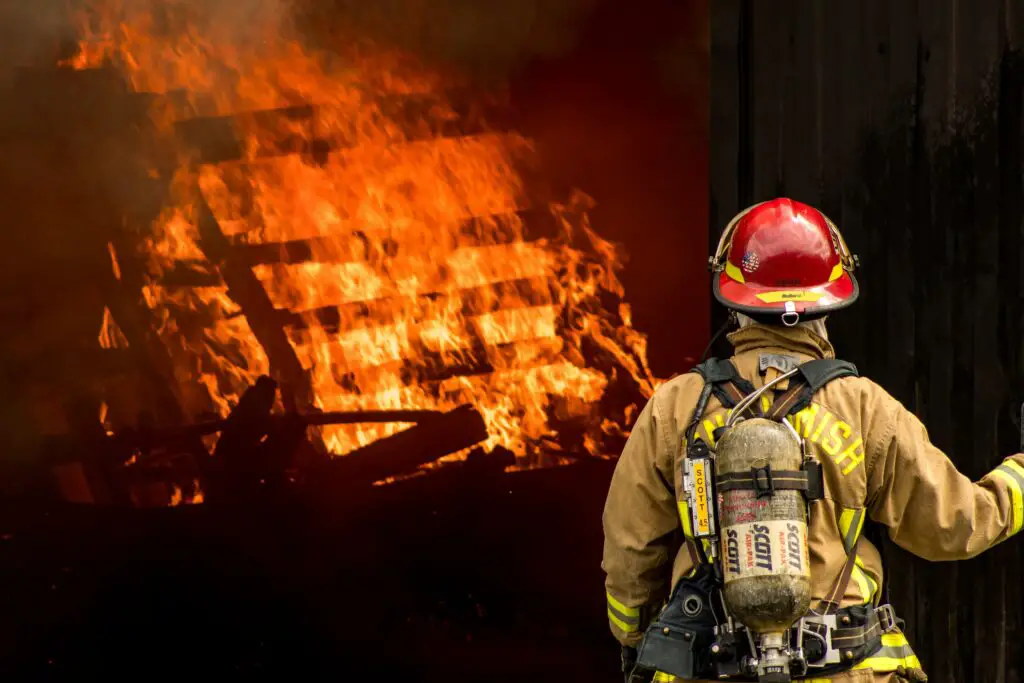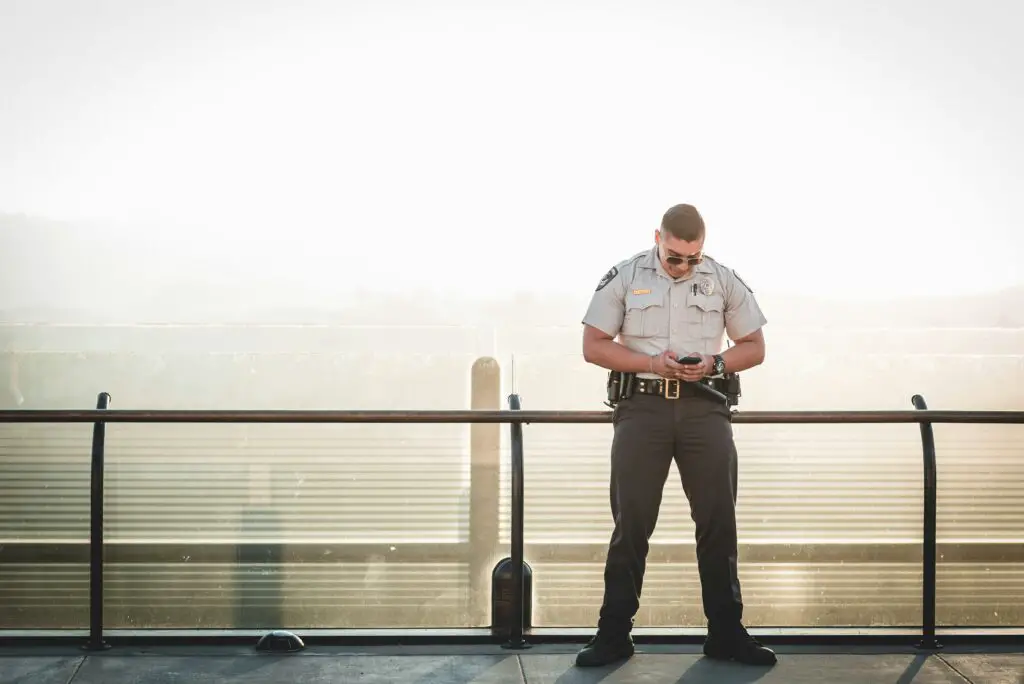This news footage provides a firsthand look at the firefighter rule regarding police activity. Let’s examine the rule further and answer the frequently asked question, “Can police officers sue you?”
The footage shows various clips of police body cameras at the scene of an investigation. The newscaster explains how, in one clip, the officer fails to notice a drop in elevation on the floor of a home. Due to his oversight, the officer slightly trips, hurting his ankle. After the investigation, the officer tells the homeowner that he needs to change the floor because it is a hazard.
Surprisingly, the newscaster explains that the same officer later sent a letter to that homeowner from the officer’s lawyer. The letter was a lawsuit for injuries he sustained while searching their home.
So, can police officers sue you? Are you liable for police getting hurt in your home? Let’s discuss.
The Firefighter Rule
The firefighter rule, otherwise known as the fireman’s rule, is a common law idea that dictates liability related to injuries sustained by safety officials during work. The rule generally bars these individuals from filing lawsuits for damages sustained during their regular working duties.
The fireman’s rule relies on the assumption of risk. When people knowingly assume risk in some fashion, they usually cannot sue for damages caused by said risk. For instance, people using heavy equipment at the gym or watching baseball games assume whatever risks naturally occur at those venues.
Therefore, firefighters, police, and other safety officials accept the risks inherent in their roles. This typically means that slips, bumps, burns, and other occupational hazards cannot usually be grounds for lawsuits.
Exceptions to the Firefighter Rule: Can Police Officers Sue You?

As for the question: “Can police officers sue you,” the answer can vary based on the firefighter rule and other circumstances. Under typical conditions, police officers cannot sue you for damages observed by the firefighter rule. Regular accidents and mishaps are not eligible for use in a lawsuit.
On the other hand, if negligence plays a role, the firefighter rule can be modified. Most courts entertain lawsuits from first responders when their injuries result from negligence. For instance, building owners who fail to meet safety regulations may be held liable if a first responder gets injured due to structural damage.
Superior courts have discussed the firefighter rule in numerous cases. Critics have scrutinized the rule, historically utilized to prevent police officers from suing after sustaining injuries in high-speed chases. In such cases, superior courts have allowed exceptions to the rule. In one case, the court ruled firefighters as “licensees,” meaning they owed the same duty of care as any citizen who would enter private property.
The firefighter rule has some historical merit in preventing repeated lawsuits from safety officials injured in their dangerous jobs. The strict nature of the concept has led some people to question its use and authority in court. Due to this, there are some cases where the firefighter rule can see some real exceptions.
How Do You Prove Negligence?

In a lawsuit, you typically must be able to prove a party was negligent in a way that resulted in damages. The process of proving negligence can be challenging to do, especially with concrete evidence in a court of law. To prove negligence, you need proof of four things:
- Duty
- Breach of duty
- Causation
- Damages or harm
Duty refers to the duty which a party owes another. In negligence cases, you must be able to prove that a party owed you certain privileges or services.
A breach of duty is the absence of a duty that was originally promised by one party. It generally occurs when a party’s action or inaction goes against the original agreement.
Causation is proof that the party’s negligence was responsible for your damages. In addition to proving they owed you something they didn’t deliver, you must show that their actions led to your damages or injuries.
Damages are the injuries or harms incurred by the plaintiff. In a lawsuit, damages can be physical, emotional, or related to property. They determine the restitution the plaintiff will receive.
Can the Police Officer Sue?
As shown by the news footage, it is clear that the police officer could file a suit, but is it likely that his efforts will be fruitful? According to TikTok attorney Ugo Lord, the answer is no.
As described above, Lord cites the firefighter rule in this instance. He says that safety officials typically cannot file suits for injuries they sustain during their jobs. The risk they assume daily outweighs their ability to sue for most minor injuries.
Lord also clarifies that negligence can nullify the firefighter rule. In the video, he demonstrates that the man facing the lawsuit likely lacks provable negligence. His house was presumably built to safety codes and is regularly inhabited. Paired with the firefighter rule, it is unlikely that the officer will have a successful lawsuit.

